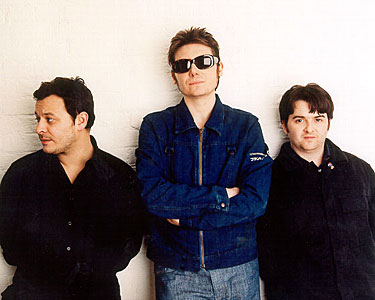From its opening strains, the Manic Street Preachers’ latest – and tenth – album, Postcards From A Young Man, is clearly the successor not only to 2007’s Send Away The Tigers, but also to their critically acclaimed 1996 success Everything Must Go.
It seems sometimes obligatory (although perhaps not useful) to divide the Manics’ work into the chart-friendly “pop” of Everything Must Go and of their successful 1998 follow-up This Is My Truth Tell Me Yours, and the darker, more political and introspective music of 1994’s The Holy Bible and 2009’s Journal for Plague Lovers.
Certainly there is a difference – not least the darker lyrics of former guitarist Richey Edwards, who disappeared, now presumed dead, in 1995. While Journal saw the Manics use up the last of Richey’s frequently disturbing lyrics and imagery, the band’s major commercial success has come largely off the back of the more anthemic music which characterised Everything.
Postcards is cut largely from that lighter cloth – it is the Dr Jekyll to Journal’s Mr Hyde.
The album opens with the roaring string crescendos of "(It’s not War) Just the End of Love" and the title-track, "Postcards from a Young Man", followed by a glorious choir-backed duet with Echo & the Bunnymen’s Ian McCulloch, "Some Kind of Nothingness".
As a tenth album, coming after more than two decades of tribulation and glamour, of rage and disillusionment, some might have expected Postcards to sound at times tired and dispirited. On the contrary, even the saddest songs on the album are packed full of the same righteous anger and intelligence that have sustained the Manics – and their fans – for all this time.
This is in fact the Manics at their best – anthemic pop songs with dark moments and more political and cultural critique than a university bookshop, performing a subtle unwinding of the chains of alienation that keep us alone and cold.

 On November 15, Merkel was successfully re-elected leader of her party - the right-wing Christian Democratic Union (CDU) - with the support of over 90 percent of the party conference.
On November 15, Merkel was successfully re-elected leader of her party - the right-wing Christian Democratic Union (CDU) - with the support of over 90 percent of the party conference.